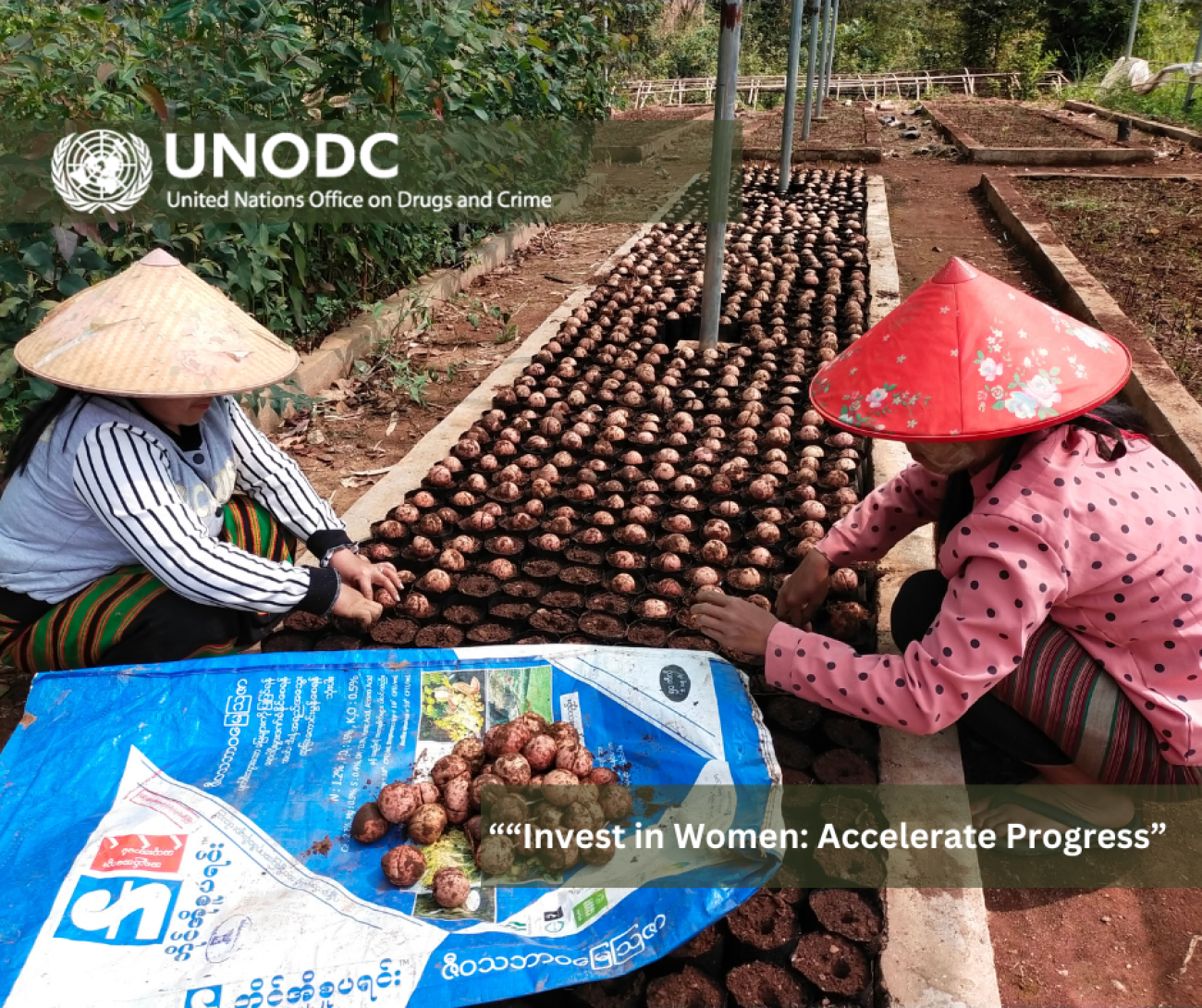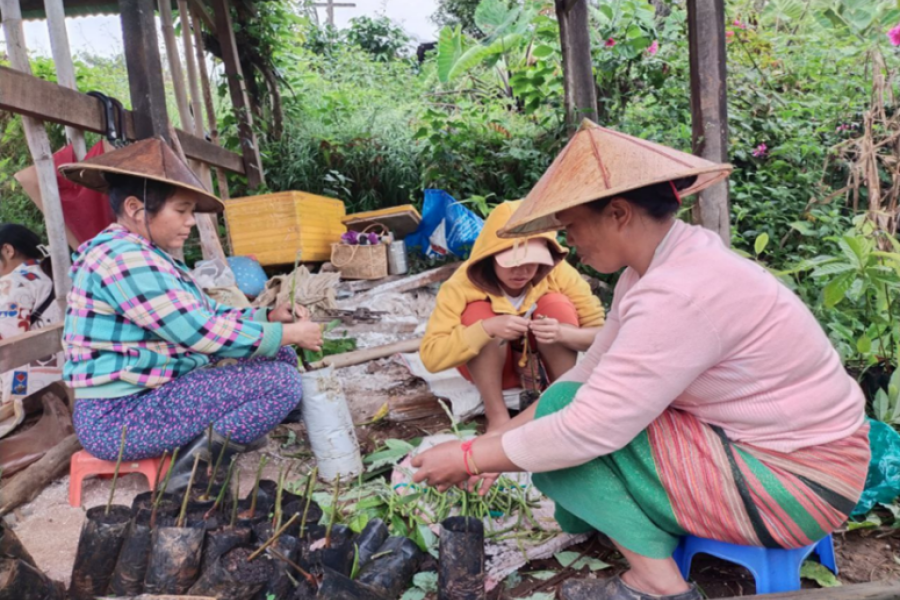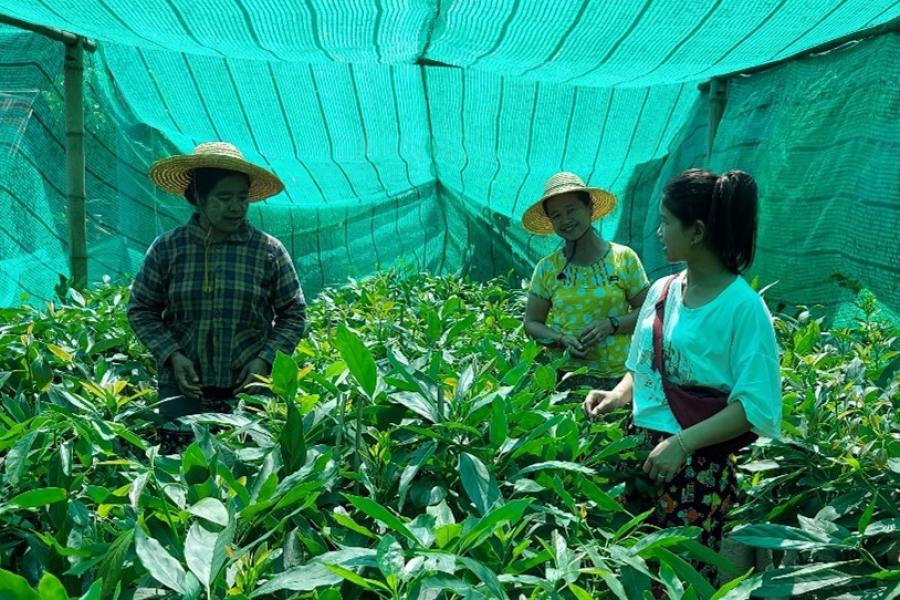Empowering Women Through Avocado Grafting: A Tale of Dignity and Growth

"We are very happy to have an additional source of income, especially during seasons when generating money is challenging."
In Myanmar’s Southern Shan State, a group of resilient women embark on a journey towards empowerment and self-sufficiency. Once an area affected by the opium cultivation, these remarkable women have embarked on a journey to create new spaces for learning and skill development, supported by the United Nations Office on Drugs and Crime (UNODC) programme in Myanmar. The women have an aim: to break barriers and redefine the role of women in their community.
Recognizing the importance of gender equality and women's empowerment, UNODC extended its support to their seedling production activities at local nurseries. This initiative not only provided additional income but also aligned with the core values of the UNODC Alternative Development Programme.
One emerging idea that captured the imagination of these empowered women was the art of grafting the Hass species of avocado which aids in reforestation and command a higher price due to its popularity in the market. Guided by the UNODC programme, the women’s groups mastered the art of grafting the Hass species of avocado and the result was extraordinary. Within 5 to 6 months, the avocado seedlings flourished under their care. Income began to flow, enabling them to establish a dedicated fund for their future endeavors.

"We are very happy to have an additional source of income, especially during seasons when generating money is challenging. With the profits from our avocado plants, we can now provide our families with this additional income,” said a representative from the women’s group.
The Hass Avocado’s popularity in the local markets soared, positioning the women’s group advantageously. The price for one Hass avocado was five times higher than the local variety. Their foresight and hard work allowed them to cultivate and sell these prized plants within their community, solidifying their reputation as skilled and reliable growers.

This was a proud moment for all the women involved.
Reflecting on their journey as a cohesive group, the women shared, “we’ve learned that it is more beneficial for us to work as a group rather than individually. We are able to share our thoughts and ideas with other members of the group, learn new skills and connect with each other for better coordination and operation of our works. This initiative taught us to be respectful toward different opinions and perspectives, so that we can have common agreements and make decisions for our work."
The impact of this UNODC supported programme has resonated far beyond the nurseries and avocado fields, inspiring other women to dream bigger and strive for a brighter future.
The story of these women’s groups and the UNODC’s support showcased the transformative power of education, skill development, and unity. Through avocado grafting and the cultivation of self-sufficiency, these remarkable women proved that gender equality is not just a distant dream but an achievable reality. With each successful harvest, they continued to redefine the narrative of women's empowerment, leaving an indelible mark on their village and beyond.
The Avocado seedling nursery initiative is a component of the UNODC Alternative Development Programme's comprehensive strategy to assist marginalized farmers in the Southern area of Shan State, who have been adversely affected by opium cultivation. With the support of the Government of Finland, UNODC remains committed to offering ongoing assistance to the farming community, including women's groups, as they strive for a secure, prosperous, and promising future.
To learn more about UNODC’s work in Myanmar, please click here.




